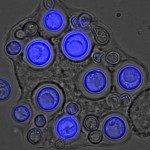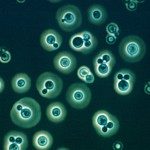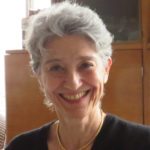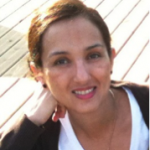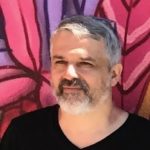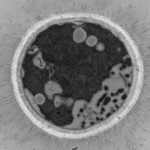Lien vers Pubmed [PMID] – 10488178
J. Clin. Microbiol. 1999 Oct;37(10):3204-9
To date, the time of acquisition of a Cryptococcus neoformans infectious strain has never been studied. We selected a primer, (GACA)(4), and a probe, CNRE-1, that by randomly amplified polymorphic DNA (RAPD) analysis and restriction fragment length polymorphism (RFLP), respectively, regrouped strains from control samples of C. neoformans var. grubii environmental isolates according to their geographical origins. The two typing techniques were then used to analyze 103 isolates from 29 patients diagnosed with cryptococcosis in France. Nine of the 29 patients lived in Africa a median of 110 months prior to moving to France; 17 of the patients originated from Europe. Results showed a statistically significant clustering of isolate subtypes from patients originating from Africa compared to those from Europe. We conclude that the patients had acquired the C. neoformans infectious strain long before their clinical diagnoses were made.
